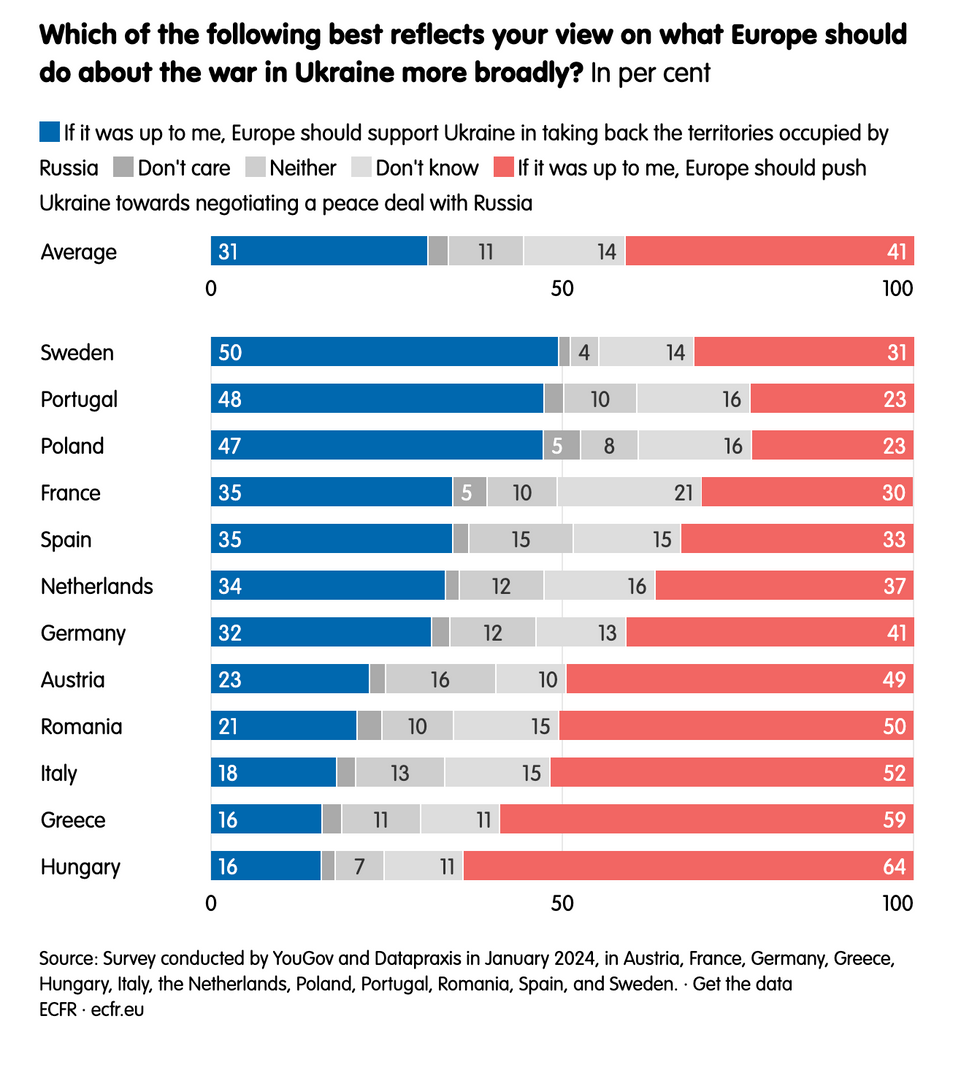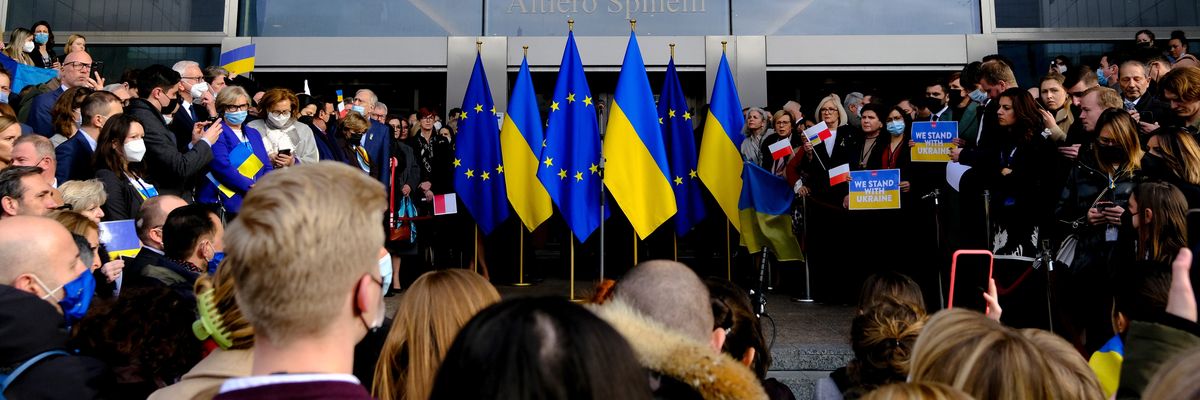Europeans have become increasingly pessimistic about the chances that Ukraine can recover territories that it has lost since the Russian invasion two years ago, according to a new poll of 12 EU member states.
And an aggregate average of 41 percent of respondents in the 12 countries said they would prefer that Europe “push Ukraine towards negotiating a peace with Russia” compared to 31 percent who said Europe “should support Ukraine in taking back the territories occupied by Russia.”
The poll, which was released by the European Council on Foreign Relations Wednesday, was conducted during the first half of January, before the latest advances by Russian forces in the Donetsk region of eastern Ukraine, notably in their takeover of the town of Avdiivka, which is likely to add to the impression that Kyiv is increasingly on the defensive.
The survey interviewed a total of more than 17,000 adults in the 12 countries, which included Austria, France, Germany, Greece, Hungary, Italy, the Netherlands, Poland, Portugal, Romania, Spain and Sweden.
It found that continued support for Ukraine’s war aims was strongest in Sweden, Portugal, and Poland where pluralities of respondents said Europe should support Kyiv’s efforts to take back its territory. Support was weakest in Austria, Romania, Italy, Greece, and Hungary, where significant pluralities or large majorities in the five countries said Europe should focus on achieving a negotiated settlement. In France, Spain, the Netherlands, and Germany, opinion was more divided between the two alternatives.

The poll’s results offered a marked contrast to previous polling by ECFR, according to Ivan Krastev and Mark Leonard, co-authors of a report released with the survey. In June 2022, ECFR found that many Europeans favored a quick resolution to the war, even if that meant Ukraine would have to give up territory. But buoyed by Ukraine’s battlefield successes in regaining territory one year later, a subsequent poll in 2023 found that a plurality of respondents in nine EU countries that were surveyed at the time wanted to support Ukraine’s war aims and believed they were achievable.
“Now, in the aftermath of Ukraine’s disappointing counteroffensive and amid flagging support in Western capitals, some of that optimism seems to have dissipated,” according to the two co-authors.
Indeed, an aggregate average of only ten percent of respondents in the new poll now believe that Ukraine will defeat Russia, while twice as many, or 20 percent, believe that Moscow will prevail. Across all countries, a plurality of respondents (37 percent on average) believes that a compromise settlement between the two countries will be the most likely outcome.
The survey also queried respondents on the impact of a possible victory by former president Donald Trump in November’s U.S. elections on the Ukraine war. An aggregate average of 43 percent of respondents said a new Trump presidency would make a Ukrainian victory “less likely.” Asked what Europe should do if Trump were to end U.S. aid to Ukraine, an aggregate average of 41 percent respondents said they would favor maintaining (21 percent) or increasing (20 percent) aid to Kyiv, while a third of respondents said they would prefer to follow the U.S. in limiting assistance.
- New poll: Nearly 70% of Americans want talks to end war in Ukraine ›
- Multi-country poll sees 'a la carte' world order ›
- What a platypus can teach Europe about Ukraine | Responsible Statecraft ›
- Europe at odds with public on escalating war in Ukraine | Responsible Statecraft ›
- Poll: Europeans see US as 'necessary partner' not 'ally' | Responsible Statecraft ›
















